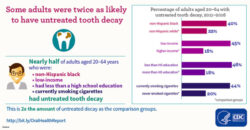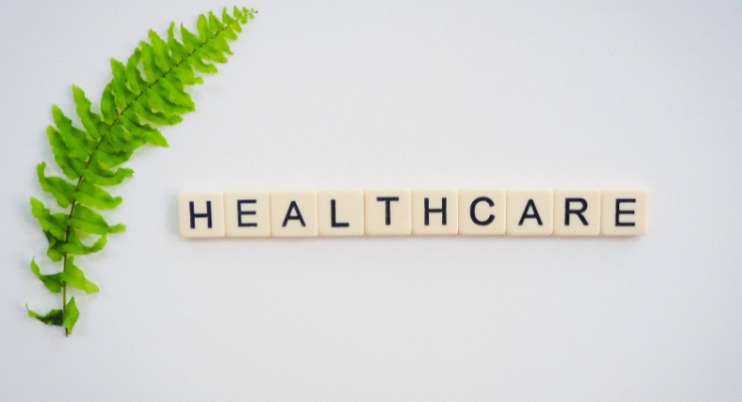Not all Americans have the same experience when they try to access public services like healthcare, security, or even justice. That’s historically true, but when you take a closer look at the issues within the healthcare system, it’s clear that there’s more beneath the surface.
There are factors like socioeconomic status, education level, geographical location, racial and gender bias that can affect one’s experience with the healthcare system. In this article, we’ll look at those factors and briefly analyze what can be done to make healthcare more accessible and inclusive for all Americans.
Healthcare Access for POC Patients
Dan Miller, founder of Spora Health, a telemedicine provider for POC patients, believes that healthcare can be affected by multiple factors.
Mr. Miller states, “People of color face many challenges in having access to medical care in the United States and when they receive it, their care may not be equivalent to that for other groups. Why this is so, however, is a complex issue involving not only their ability to pay for care and medical distrust, but also in such factors as patient preferences, differential treatment by providers, and geographical variability.”
He continues, “One of the biggest challenges POC patients face is with provider behavior and stereotyping. Many provider treatment decisions are influenced by their inherent – yet often unconscious – biases and unrecognized discrimination that are a result of systematic bias in the healthcare system.”
For the promotion of health equity, Spora Health was founded to provide an alternative for POC people who need better healthcare options. With this, patients have access to medical professionals who are motivated by the desire to improve health equity and provide care that is radically inclusive.
This can be emulated in other health facilities to ensure that there is cultural-sensitivity training to create awareness about the unconscious biases medical personnel could bring to the workplace. Mr. Miller has done this with the medical professionals at Spora Health and recommends that they “learn how to identify their own biases and learn [how to] foster more inclusive medicine.”
Unequal Access to Dental Care
Though it may not seem like there are socioeconomic or racial disparities when it comes to medical services like dental care, studies from the CDC prove otherwise.
According to the CDC, there’s a specific demographic that is nearly twice as likely to live their lives with untreated tooth decay. Take a look at the data below:

This study suggests that a combination of racial and socioeconomic factors affect people’s access to healthcare. Even their level of education puts them at higher risk of having untreated tooth decay. Having a lower level of education often leads to lower levels of income and can make dental care out of reach financially.
Dr. Deane Waldman tries to encourage people to avoid viewing healthcare inequality as something that is purely racially biased. He states, “I believe there are some racial disparities in outcomes. [However] these are probably…based on socioeconomic factors rather than purely medical factors or inherent bias in healthcare.” With this in mind, the study above does indicate that ethnic minorities of lower income are significantly more affected than ethnic minorities of higher income levels.
What does this tell us?
Being an ethnic minority alone is not enough to determine that you’ll have less access to healthcare. However, when you include other factors like education level, socioeconomic status, income level, and even geographical location, these factors can alter your experience altogether.
This is a clear indication that the inequalities in healthcare access are complex and people’s experiences with medical professionals in the US can be affected by multiple factors, not just race alone.
It’s important for there to be more culturally competent healthcare so that economically disadvantaged and ethnic minorities patients are treated equally.
For example, the Apollo Medical Travel specializes in dental care and their own statistics show that their largest numbers of medical inquiries come from patients who are:
- 53% white
- 31% black
- 11% Latino
- 5% Asian
Even with this huge difference between ethnic minorities and white Americans, Wesley Jacobs and his team at Apollo Medical Travel intentionally set out to help patients get access to high quality, affordable dental care.
Culturally Competent Healthcare Programs
In case you’d like to know more about health programs that specialize in serving ethnic minorities and lower-income patients, here are a few that you should put on your radar.
Free World Bound is a program from Prism Health, in North Texas, that provides culturally competent healthcare to those at risk of diseases like HIV and other sexually transmitted diseases.
In addition to providing healthcare services, programs like Free World Bound also help with:
- Emergency financial assistance
- Substance misuse prevention education
- Behavioural health services
- Linkage to social services
- Housing and transportation
- HIV and STI testing as well as procurement for medication
These are the kinds of programs that specialize in providing healthcare for ethnic minorities with interculturally competent medical professionals.
Another one to put on your radar is the National Hispanic Medical Association which is dedicated to reducing the racial disparities that Hispanics face in the American healthcare system. With a representation of over 50,000 Hispanic medical professionals, they’ve started programs like Vaccinate4All.
This program strives to build vaccine confidence in Latino communities while addressing cultural and systemic barriers to vaccine access.
Main Takeaways
If access to quality, affordable healthcare was equal for all Americans, then programs like the ones listed above wouldn’t need to exist. People wouldn’t be trying to provide cultural sensitivity training for their medical personnel, and there would be no racial disparities in healthcare access.
But in reality, this is not the case. It’s clear that there are systemic issues within the US healthcare system that disproportionately affect low-income level patients and especially low-income people of color. Though race can negatively affect one’s experiences with medical professionals, there are also other factors that come into play.
The important thing is not to point fingers, but to work together to find ways to promote health equity. It’s possible for the healthcare system to be more inclusive, we just have to work together to make that happen.
Photo by Total Shape from Pexels
- Enjoy sacred times with respect and joy – by Deborah Levine - April 30, 2024
- Inter-generational education needed now – by Deborah Levine - April 19, 2024
- Tracking our Terrorist Destructors – by Deborah Levine - April 19, 2024

